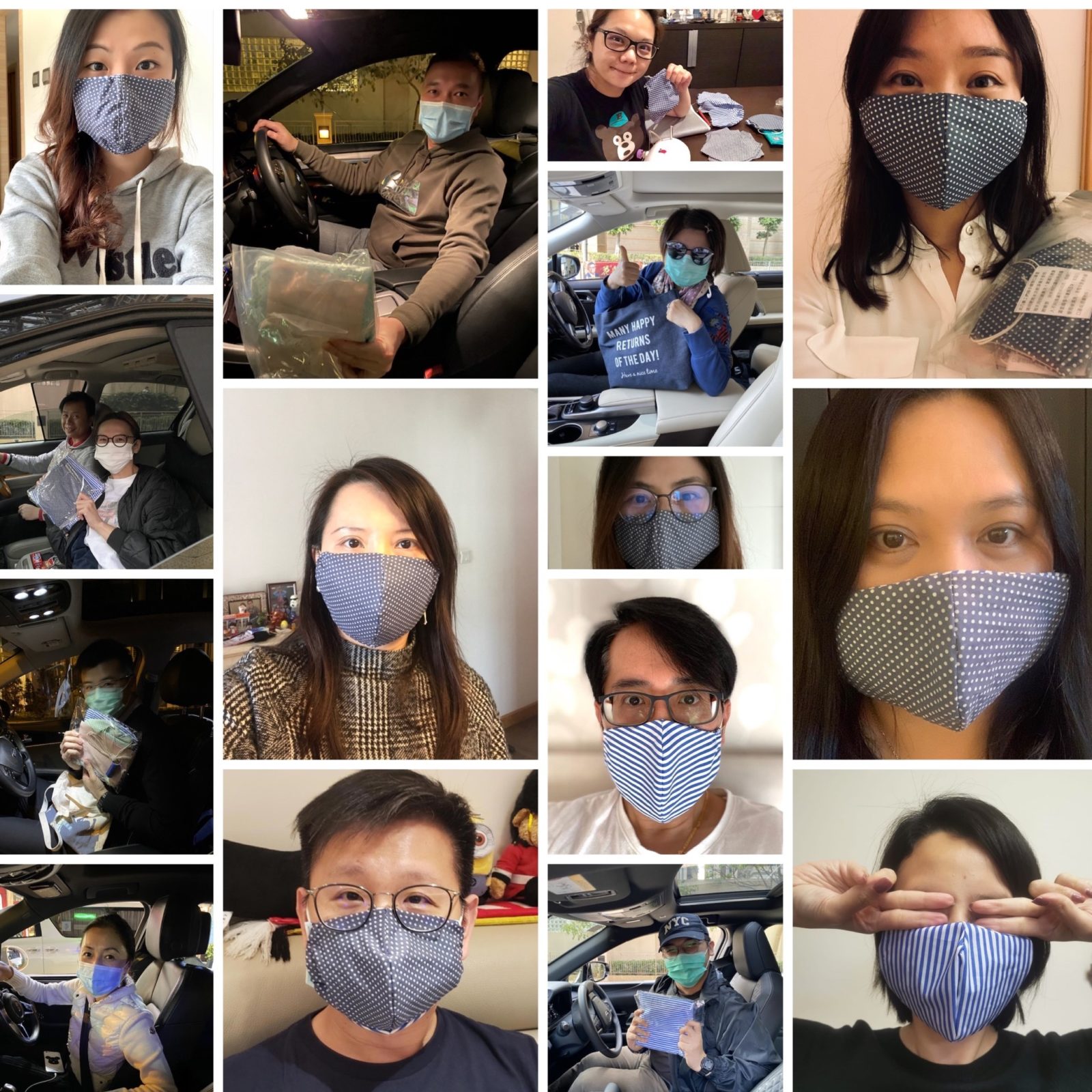
Volunteering in a lockdown: A stay-at-home mask-making sewing bee
Microsoft Hong Kong employees help the needy and stay connected with Teams and Yammer
COVID-19 lockdowns across the world have forced millions of people to stay at home. And coping with the isolation is proving tough for many.
But a group of Microsoft workers in Hong Kong has turned this challenge into an opportunity to do good – by making face masks for the needy.
As members of their office’s Serving the Community Club, they were practiced at helping out on charitable projects, like preparing and delivering meals to elderly citizens across the territory. But when Hong Kong went into lockdown and travel was restricted in February, they had to change tack.
“We came up with a plan to produce masks for people in need,” explains group member Meg Fung. “At the time, it was really difficult to buy masks in the markets. They were expensive and often were just not available. So we initiated this activity in mid-February, and 29 of our colleagues raised their hands to help.”
They formed a “D-I-Y Masks Team” made up of two groups of volunteers: One to make the masks – either by hand stitching or using sewing machines – and the other to deliver the materials needed door-to-door.
Fabric and rubber bands were bought with some funding from Microsoft Hong Kong. Swathes of material were cut out and then distributed by car.
“We’ve learned how easy and inspiring it is to stay together as a team virtually via Microsoft Teams and Yammer,” says Fung.
Using both platforms, team members nominated how many masks they would make and swapped sewing tips and how-to instructions. They also coordinated when and where volunteer drivers would drop off materials and when the completed masks could be picked up.
They nominated how many masks they would make and swapped sewing tips and how-to instructions. They also coordinated when and where volunteer drivers would drop off materials and when the completed masks could be picked up.
“It was just like a logistics company,” says Fung.
Staying connected with each other also helped maintain team morale and enthusiasm.
“We shared pictures of what we produced. This encouraged everyone to keep working,” Fung recalls.
“Most of us are not good at sewing. Using just a needle and thread could take up to an hour. It is really time-consuming. Some colleagues asked our mothers and other family members to help out. It was real teamwork.”
About 200 masks were made over a two-week period and were given out to some of Hong Kong’s most needy – like street cleaners and the elderly.
“These people just didn’t have time or ability or money to queue and buy masks,” says Fung. Since then, the availability and distribution of masks have improved.
“We did our bit as a team to help when the masks were really needed.”














